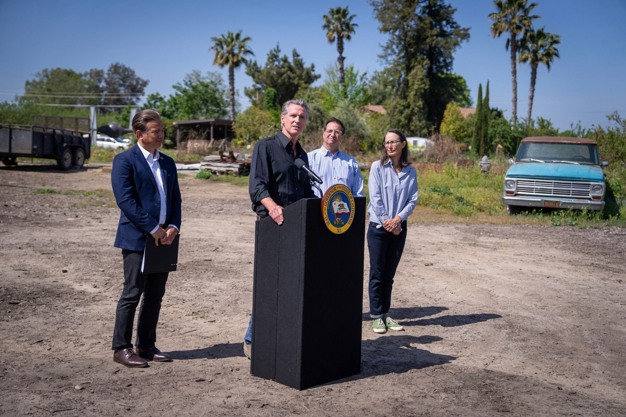Governor Gavin Newsom and California Attorney General Rob Bonta have filed a lawsuit in federal court challenging President Donald Trump’s use of emergency powers to impose broad tariffs under the International Emergency Economic Powers Act (IEEPA). Filed in the U.S. District Court for the Northern District of California, the suit contends that Trump’s actions exceed presidential authority, inflict economic harm on California, and undermine constitutional trade regulations.

The lawsuit argues that the IEEPA, enacted in 1977, was not intended to authorize the unilateral imposition of tariffs. Instead, it was designed to allow presidents to implement targeted sanctions, embargoes, and asset freezes in response to national emergencies. It makes no mention of tariffs, and no prior president has attempted to use it for that purpose. California’s legal action maintains that Trump’s tariffs, especially those aimed at China, Mexico, and Canada, bypass Congress and violate the Constitution’s assignment of trade authority to the legislative branch.
California, the largest economy and agricultural producer in the U.S., claims the tariffs have disrupted supply chains, driven up consumer prices, and harmed businesses statewide. The state engaged in nearly $675 billion in two-way trade in 2024, with key partners including China, Mexico, and Canada. More than 40% of California’s imports come from these three countries. The lawsuit also invokes the U.S. Supreme Court’s “major questions doctrine,” which holds that significant executive actions must be clearly authorized by Congress.
In a parallel case, the New Civil Liberties Alliance has filed a lawsuit on behalf of a Florida-based small business, Simplified, a company that sells organizational products. The business argues that Trump’s tariffs, imposed under IEEPA, have significantly raised operational costs and forced price increases for customers. Simplified contends that the tariffs were enacted without the necessary legal findings, procedures, or statutory authority and thus violate both the IEEPA and the non-delegation doctrine of the Constitution.
Simplified’s lawsuit does not dispute the existence of a national emergency but argues that the tariffs imposed under the pretext of combating opioid imports from China were not “necessary” as required by law. The company further claims the executive orders altered the U.S. tariff schedule unlawfully and sidestepped Congress’s sole authority to regulate international trade.
Both lawsuits reflect a broader opposition to the expansive use of presidential powers to impose tariffs without congressional approval. Critics—including bipartisan lawmakers, economists, and trade organizations—warn that such actions harm American consumers and businesses, erode constitutional checks and balances, and create economic uncertainty. The outcome of these legal challenges could have significant implications for the limits of executive power in trade policy.
For more information:
Governor Gavin Newsom
Tel: +1 916 445-2841
www.gov.ca.gov
Source 2: The Hill
